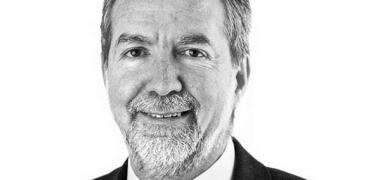We are celebrating the 10-year anniversary of Debats d’Educació by giving the educational community the opportunity to air its views

I am an economist, and a director and manager of schools. I have been a teacher on numerous occasions and I am passionate about formal and non-formal education.
At present, I am director general of Fundació Jesuïtes Educació, an umbrella foundation for the seven Jesuit schools in Catalonia.
The three things I’ve learned
Moving towards a profound change in Education is possible today
We can mark out our future as teachers. We are not condemned to continue doing what we have done up until now, nor to wait for whichever minister happens to be in power to tell us the direction we should take. There is no need to be victims of the future: we can play a key role in shaping it.
We have a vocation, we have firm beliefs, and we can open up a brave and participative debate about how to move towards this change needed by our schools.
Society has changed a lot in the last twenty-five years, while schools, in essence, have changed very little. The change I refer to must be profound and audacious. The biggest mistake would be to think that we can use what we have, that we only need to correct a few things... or to introduce some more activities into school.
We must adhere to our convictions and create the appropriate conditions, both inside and outside schools, because this change is possible with the resources that we have (they are fewer, but they still exist).
These are times in which we must perform mental gymnastics in order to respond to unexpected systemic changes. These are times for moving up to the front, steeling our will and reinforcing synergies and alliances. All those of us who feel motivated and excited about transforming schools and education must move into action, as Catalonia opens its doors to a different future.
Today's school is stressed and the educational model on which i t is based is exhausted
A systematic reappraisal of the teaching and learning process is required.
We must no longer think that we will achieve the desired change by adding more and more activities and new features to schools, of which many have already been added over the last twenty-five years.
The educational model on which schools are based is exhausted. One of the most disturbing signs of this crisis is the high rate of failure and early drop-out, but it is important to see that the crisis runs deeper than this.
Resources (human resources, space and facilities) must be reorganized in a radically different way and pilot learning projects must be set in motion.
It is time to reduce today's extensive school curriculum, group pupils differently with respect to the present class groups, change the distribution of timetables and space, foster action by the teaching staff as a team...
We should work with cross-curricular projects which draw on experience to integrate knowledge, skills, competences and attitudes into a genuine learning community that shares and creates knowledge, while returning to basic, vital values, all within the framework of a form of educational organization that is totally different.
We stand before a change of educational paradigm
Therefore, all of society and the educational community as a whole must be ready to take part.
We are talking about a genuine change of educational paradigm, because it is the very society in which we live that has instigated it. And in this respect, we do not have many options. More than 12% of the 21st century has already elapsed and we need to conceive and raise a new educational model.
A new model that places the pupils in the centre of the teaching and learning process, and which also makes it possible to adapt to their qualities and characteristics, so that on an individual basis and in permanent dialogue with their social learning group they may progress and mature to the point that they can draw up a life project of their own.
The change is profound and involves changes of role, changes of scene and organizational changes. It means overcoming inertia and moving forward together into unknown surroundings. The change is a path, and as we take this path we must find and define a new model that does not exist today, although many of the innovative initiatives introduced and tested up until now provide an indication of the direction to take.
And this change is, above all, a cultural change. This is why the participation of teachers, families and the whole of society is required.
This is the major challenge that we face.















 The texts published on this website are, unless otherwise indicated, covered by the Creative Commons Spain Attribution 3.0 licence. You may copy, distribute, transmit and adapt the work, provided you attribute it (authorship, journal name, publisher) in the manner specified by the author(s) or licensor(s). The full text of the licence can be consulted here:
The texts published on this website are, unless otherwise indicated, covered by the Creative Commons Spain Attribution 3.0 licence. You may copy, distribute, transmit and adapt the work, provided you attribute it (authorship, journal name, publisher) in the manner specified by the author(s) or licensor(s). The full text of the licence can be consulted here: